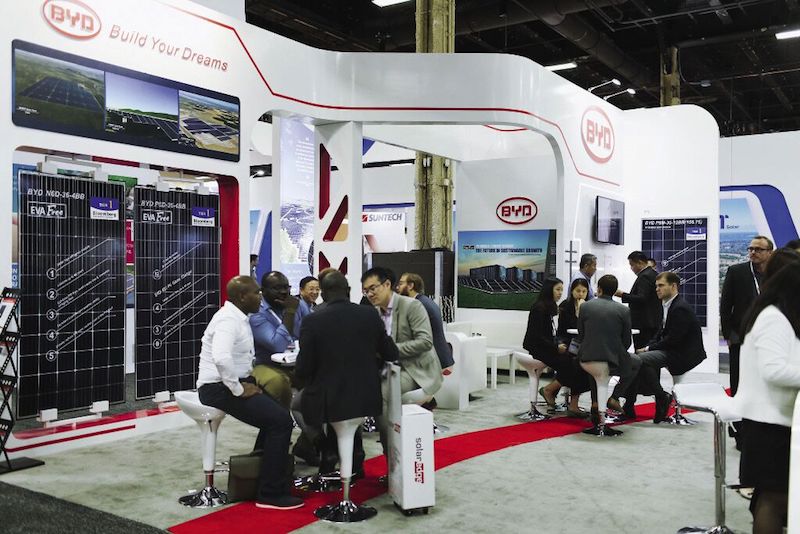BYD, which is a Chinese technology leader active in solar module, electric vehicles (EVs) and stationary battery production, has published mixed financial results for 2017.
While the firm posted a squeeze on its overall financials, the solar and battery divisions enjoyed a relatively positive year, with revenue increasing 18.85% against 2016 to reach RMB 8,442 million (US$1.34 billion).
BYD stated that it will actively expand its presence in the solar market in 2018. Despite the increased revenues, the solar division is still a loss-maker for BYD due to the “intensified market competition” in the PV space, BYD chairman Wang Chuan-fu said in a statement.
Last year, batteries and PV accounted for 8% of BYD’s total revenue, up from 7% in 2016.
Overall, BYD’s net profit declined by 19.5% in 2017 (down to RMB 4.07 billion) compared to the year prior – a plunge pinned on the scaled-back subsidies for new-energy vehicles (NEVs) in China. This is an industry in which BYD has invested heavily as it looks to take advantage on a growing clamor within China to adopt EVs to tackle the nation’s growing air pollution problem.
“As we are affected by reduction in NEVs subsidies, the profitability of the business, especially for electric buses, has declined substantially so as to bring great pressure to the group’s overall profit,” said Chuan-fu.
First quarter net profit for 2018 is expected to be between 75 – 92% lower than the same period last year following February’s cut by the Chinese finance ministry in support for NEVs. Faced with this new reality, BYD will seek to diversify its business in electric batteries and services throughout the year, the company said.
This content is protected by copyright and may not be reused. If you want to cooperate with us and would like to reuse some of our content, please contact: editors@pv-magazine.com.



3 comments
By submitting this form you agree to pv magazine using your data for the purposes of publishing your comment.
Your personal data will only be disclosed or otherwise transmitted to third parties for the purposes of spam filtering or if this is necessary for technical maintenance of the website. Any other transfer to third parties will not take place unless this is justified on the basis of applicable data protection regulations or if pv magazine is legally obliged to do so.
You may revoke this consent at any time with effect for the future, in which case your personal data will be deleted immediately. Otherwise, your data will be deleted if pv magazine has processed your request or the purpose of data storage is fulfilled.
Further information on data privacy can be found in our Data Protection Policy.